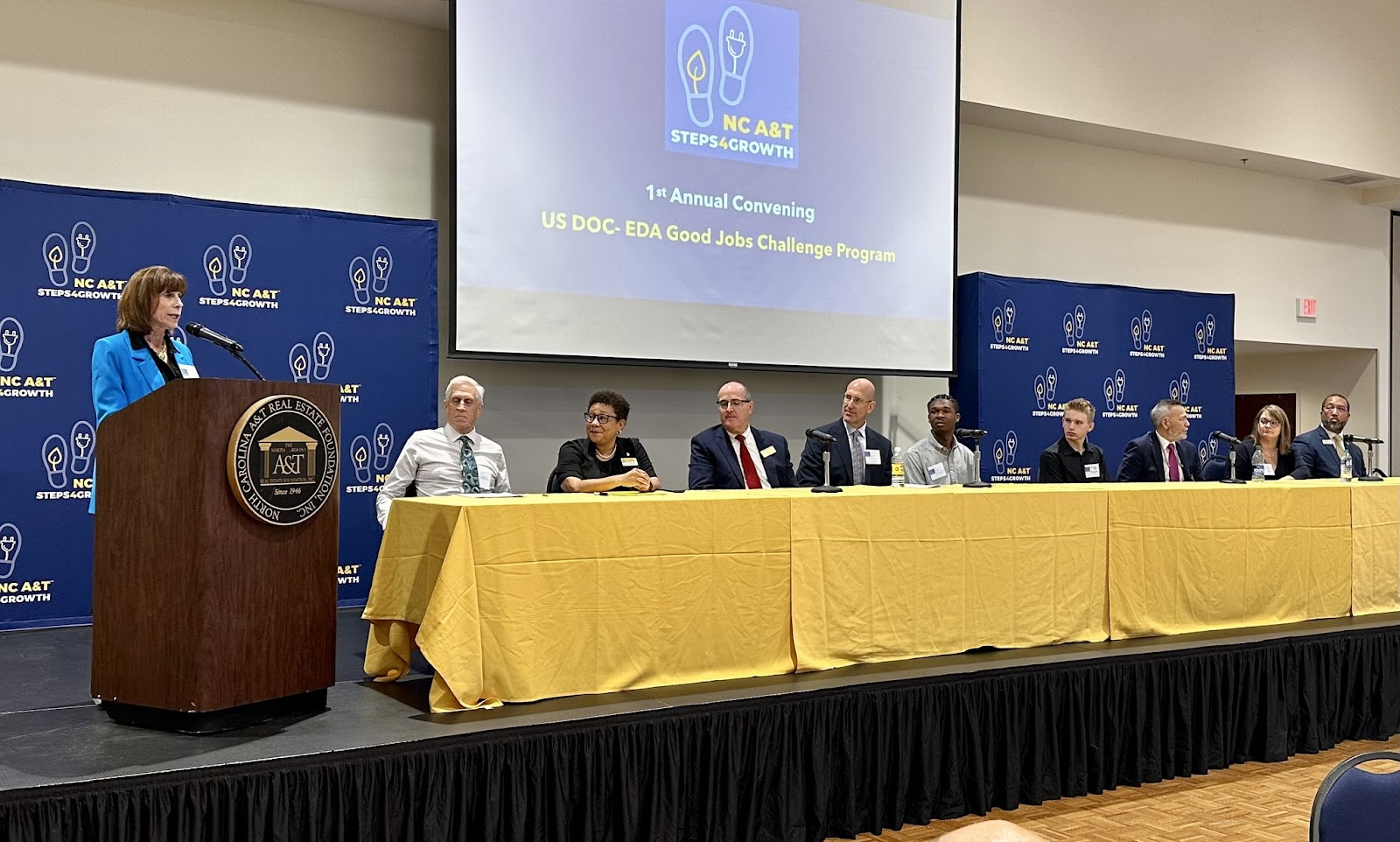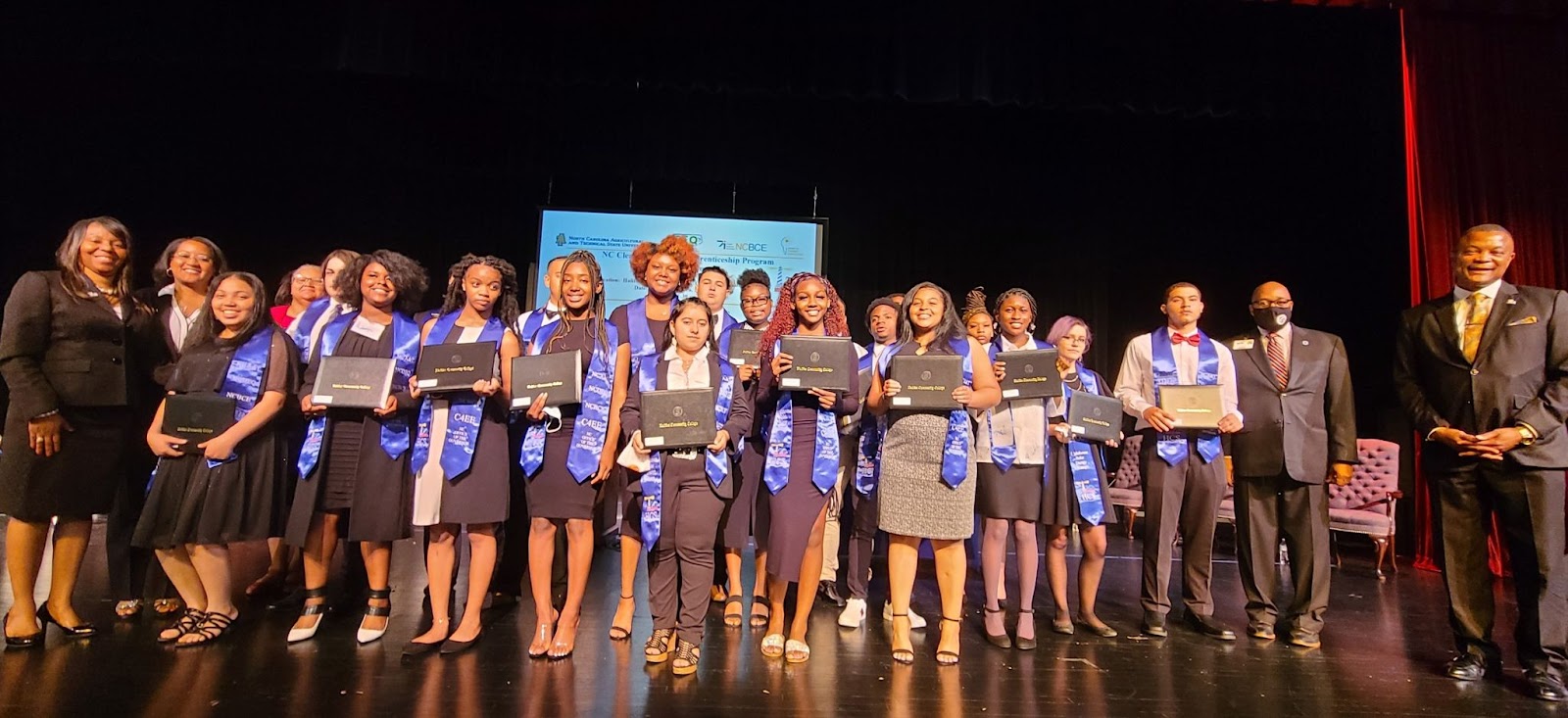According to the U.S. Bureau of Labor Statistics, the fastest-growing occupations between 2023 and 2033 are wind turbine service technicians, with a growth rate of 60%, and solar photovoltaic installers, with a growth rate of 48%.
Dr. Matt Miller, chair of the sustainability technologies and geographies program at Central Piedmont Community College (CPCC) in North Carolina, explained to Channel 9, “We’re seeing it grow because it takes relatively little time to design and implement, say, a solar farm, whereas coal-fired power plant, it may take 10 years to the permitting, and the cost is next to nothing compared to traditional energy sources. And there’s no pollution, right? There’s no pollution with solar, wind energy.”
Environmental considerations aside, clean energy makes for a more efficient energy industry. “I always tell my students that there are two shades of green, even if you do not care about the environment, you cannot argue with the amount of money that it saves and generates in the electrical industry,” Dr. Miller added.

Photo Courtesy Central Piedmont Community College
CPCC’s Clean Energy and Utilities Continuing Education program provides training for students to move on to careers in electrical linework, electric vehicle (EV) charging station installation, and solar panel installation. Dr. Miller teaches Introduction to Solar Energy for Homeowners, through which students learn the basics of solar systems, their suitability for different homes, and their associated costs, rebates, and incentives. He told Channel 9 that his students often receive employment offers before graduation: “They really need people to sustain the renewable energy boom. It’s an exciting opportunity to get into this field, to be a part of this growth.”
One of his former students, Amanda Smith, is now a senior director at Pine Gate Renewables after deciding at age 30 that she wanted to return to school. She met with Channel 9 at a solar plant in Lincolnton, where she explained, “Solar jobs themselves, they’re open to people with different technical skills. So many different levels of skills, as well as educational backgrounds.” She elaborated that career advancement in the industry is relatively streamlined: “I think, a lot quicker than you might see in other industries, being that we are still a relatively new industry.”
In 2018, CPCC became the first community college to partner with Tesla for its 12-week Tesla START program. The EV company’s partnership with educational institutions helped it fill internal technician roles for its Tesla Service Centers. Dr. Kandi Deitemeyer, CPCC president, reflected, “This is such an extraordinary, new opportunity for CPCC students in our Automotive Systems Technology program and one that will set them up for success in a growing field. Clearly, the automobile industry is moving toward all-electric systems and greater sustainability. CPCC students will be on the cutting-edge of this industrial shift.”

Photo Courtesy Central Piedmont Community College
Several other educational institutions in the state have programs geared toward preparing the future workforce to fill this gap. At North Carolina State University, Professor Elizabeth Guthrie Nichols has served for the past decade as the program coordinator for the Renewable Energy Assessment program, which is available as a 15-credit-hour undergraduate minor, a 12-credit-hour online undergraduate certificate, an online graduate certificate, or a master’s degree. Between 2015 and 2024, over 150 students completed one of the undergraduate programs, 37 students obtained a master’s degree, and 13 students obtained a graduate certificate. In 2023, with $2.25 million in federal funding, Professor Nichols also launched the Renewable Energy Workforce Investments in Natural Resources and Design (REWIND) initiative, which intends to give students from underserved and underrepresented groups the opportunity to join the clean energy workforce.
In 2022, meanwhile, the U.S. Department of Commerce awarded a $23.7 million American Rescue Plan Good Jobs Challenge grant to North Carolina Agricultural and Technical State University (NC A&T). The university used the financing to create a clean energy workforce training program called Steps4Growth. Over 40 companies, including Blue Ridge Power, Duke Energy, Enviva, Siemens, and Strata Clean Energy, agreed to hire 3,000 trainees in the first four years and 1,500 trainees annually afterward. As former Governor Roy Cooper noted, “This transformative grant will invest in our state’s diverse workforce as we continue to create high-paying clean energy jobs and bolster North Carolina A&T’s reputation as a national leader in preparing students for the economy of the future.”

Photo Courtesy Congresswoman Kathy Manning
For students at the high school level, Halifax Community College and numerous partners in 2021 launched the Halifax Lighthouse Solar Camp. This apprenticeship program provides students with a mix of experience in the classroom and paid employment experience. Strata Clean Energy was the first employer to get on board. When the first 20 students completed the program that May, they had a Solar Workforce Certificate and three industry certifications. Former Governor Cooper, whose office was one of the partners involved in developing the program, said, “North Carolina’s transition to a clean energy economy creates good paying jobs, and we need skilled workers who are trained and ready. It’s uplifting to see high school students from a variety of backgrounds getting the knowledge and skills they need to work in the growing fields of solar and wind power.”

Photo Courtesy Halifax Community College





